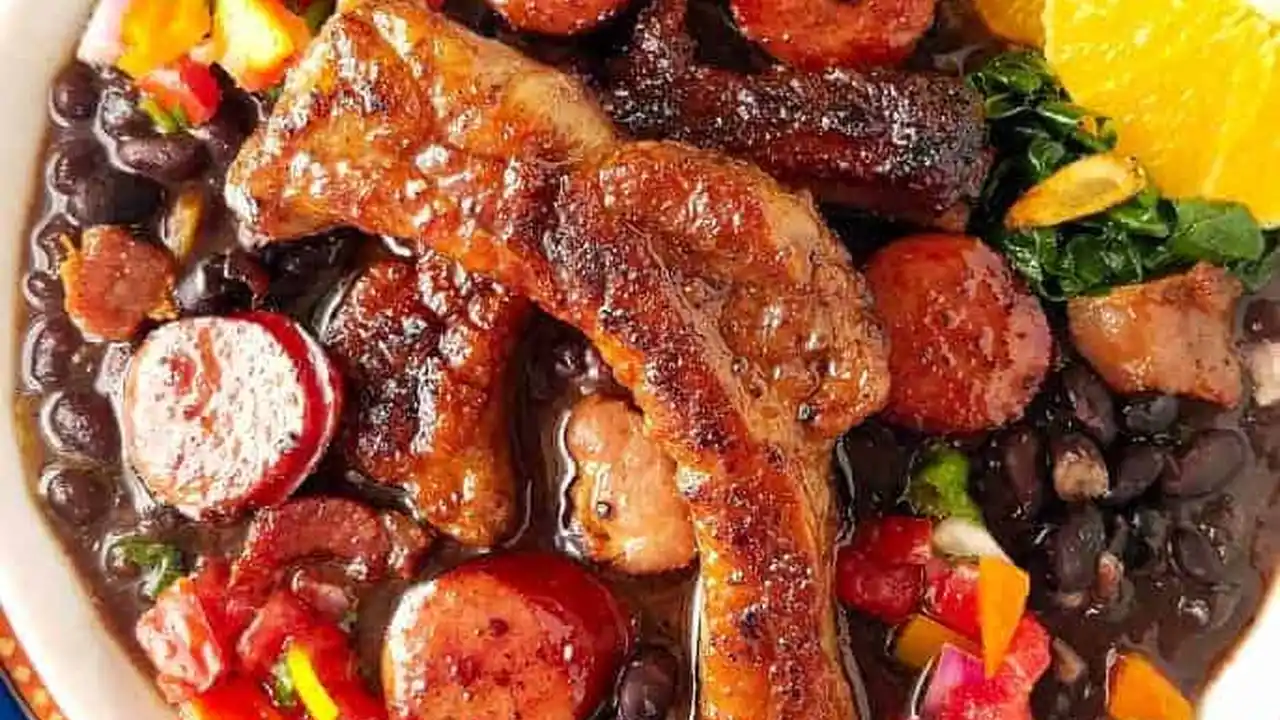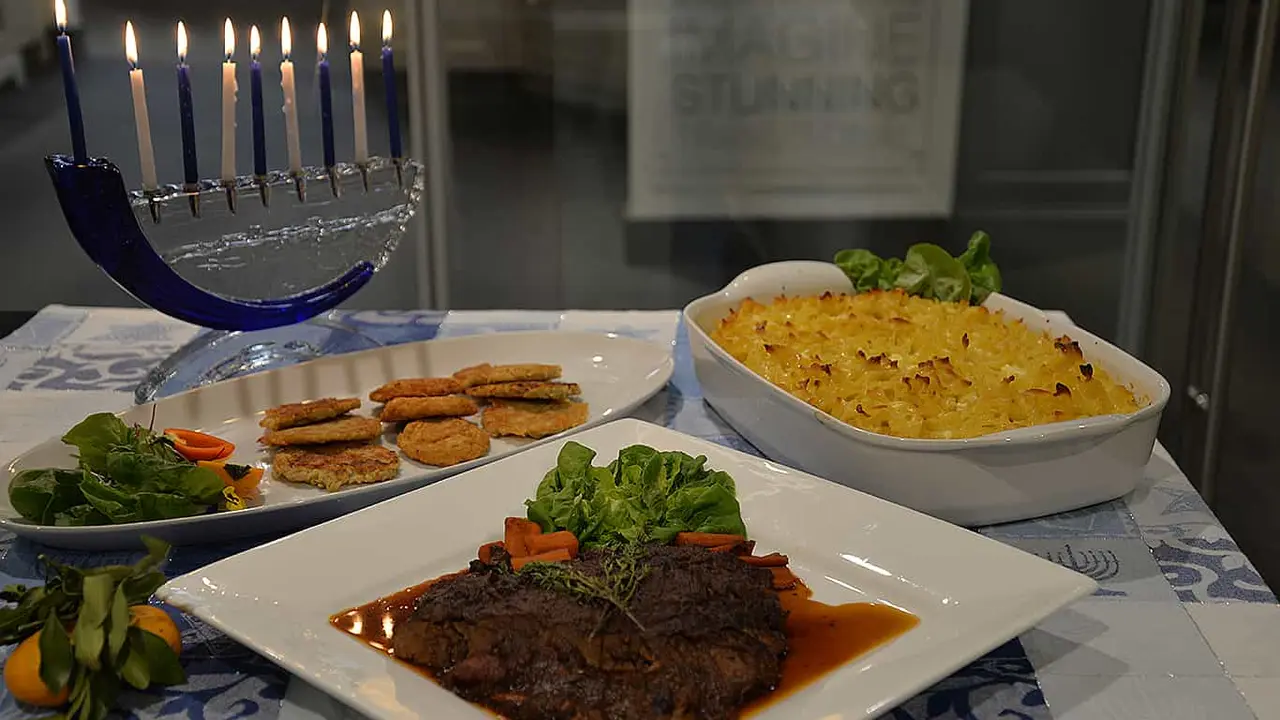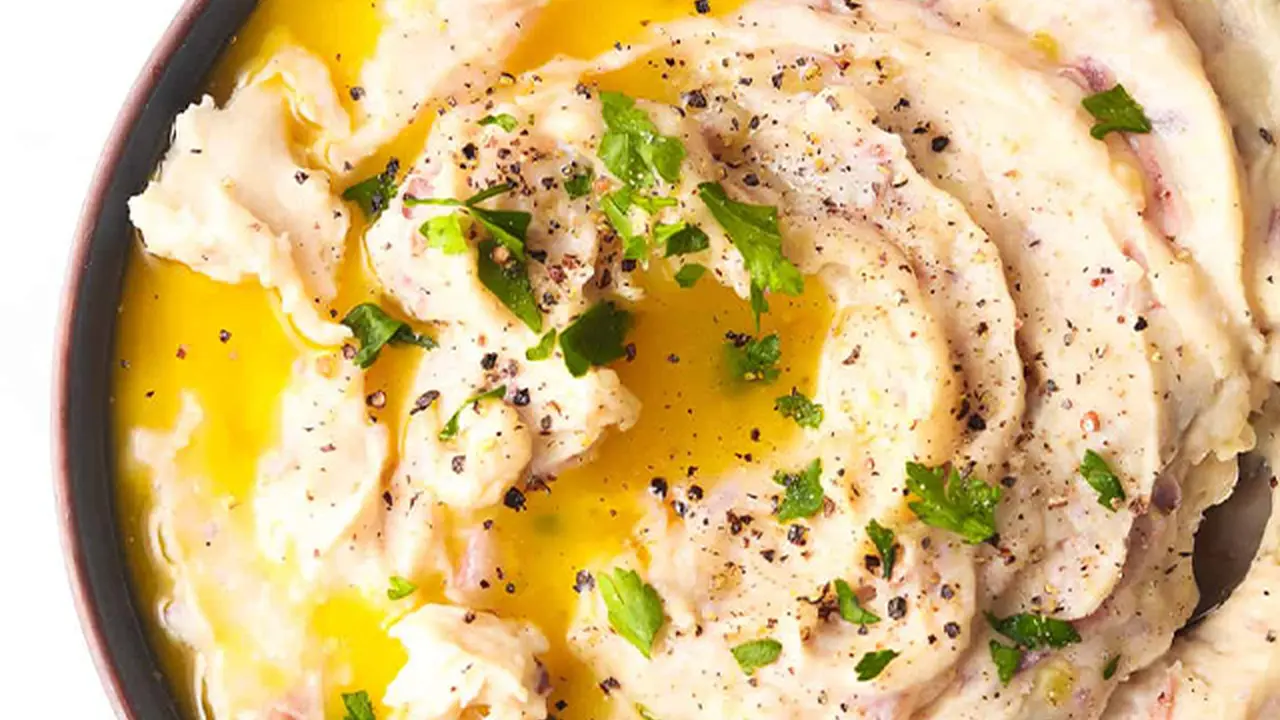7 Best Brazilian Feijoada Recipes Hearty and Flavorful

Experience the aromatic and flavorful world of Korean BBQ with these 7 delicious recipes. From bulgogi to kalbi, these marinated meats are grilled to perfection. Enjoy a social and flavorful Korean BBQ night at home.
Okay, so you're thinking about Korean BBQ night at home? Awesome choice! It’s a fantastic way to spend an evening with friends and family, grilling up delicious meats and enjoying all the amazing side dishes. But where do you start? Don't worry, we've got you covered with everything you need to know to make your Korean BBQ night a smashing success. We'll dive into the essential recipes, equipment recommendations, and even some tips and tricks to make you a KBBQ pro.
What Makes Korean BBQ So Special A Flavorful Introduction
Korean BBQ, or KBBQ as it's often called, isn't just about grilling meat; it's an experience. The interactive nature of grilling at the table, the variety of flavors and textures, and the communal aspect all contribute to its unique appeal. At its core, KBBQ features marinated meats like bulgogi (thinly sliced marinated beef) and kalbi (marinated short ribs), grilled right at the table on a portable grill. These meats are then enjoyed wrapped in lettuce leaves, along with various side dishes known as *banchan*. The combination of sweet, savory, and spicy flavors is what makes KBBQ so addictive.
Bulgogi The Star of the Show Detailed Recipe and Variations
Bulgogi is arguably the most popular Korean BBQ item. Its sweet and savory flavor makes it a crowd-pleaser. Here’s a basic recipe to get you started:
Ingredients:
- 1 lb thinly sliced beef (ribeye or sirloin work well)
- ½ cup soy sauce
- ¼ cup brown sugar
- 2 tablespoons sesame oil
- 2 tablespoons rice wine (mirin)
- 2 tablespoons minced garlic
- 1 tablespoon grated ginger
- 1 tablespoon Asian pear juice (or apple juice)
- 1 teaspoon black pepper
- 1 green onion, thinly sliced
Instructions:
- In a bowl, combine soy sauce, brown sugar, sesame oil, rice wine, garlic, ginger, pear juice, and pepper.
- Add the sliced beef to the marinade and mix well. Make sure the beef is fully coated.
- Cover the bowl and refrigerate for at least 2 hours, or preferably overnight. This allows the flavors to fully penetrate the meat.
- When ready to grill, heat your grill to medium-high heat.
- Grill the beef in batches, cooking for 1-2 minutes per side, or until cooked through. Be careful not to overcrowd the grill, as this will lower the temperature and steam the meat instead of grilling it.
- Garnish with green onions and serve immediately.
Variations:
- Spicy Bulgogi (Dak Bulgogi): Add 1-2 tablespoons of gochujang (Korean chili paste) to the marinade for a spicy kick.
- Pork Bulgogi (Dweji Bulgogi): Substitute pork shoulder for beef and add a bit more gochujang for an extra layer of flavor.
- Chicken Bulgogi (Dak Bulgogi): Use boneless, skinless chicken thighs and adjust the cooking time accordingly.
Kalbi Marinated Short Ribs Recipe and Tips
Kalbi, or Korean BBQ short ribs, is another must-have for your KBBQ feast. The marinade is similar to bulgogi, but the short ribs provide a richer, beefier flavor.
Ingredients:
- 2 lbs Korean BBQ short ribs (flanken cut)
- ½ cup soy sauce
- ¼ cup brown sugar
- 2 tablespoons sesame oil
- 2 tablespoons rice wine (mirin)
- 2 tablespoons minced garlic
- 1 tablespoon grated ginger
- ¼ cup grated onion
- 1 tablespoon Asian pear juice (or apple juice)
- 1 teaspoon black pepper
- 1 green onion, thinly sliced
Instructions:
- In a bowl, combine soy sauce, brown sugar, sesame oil, rice wine, garlic, ginger, onion, pear juice, and pepper.
- Add the short ribs to the marinade and mix well.
- Cover the bowl and refrigerate for at least 4 hours, or preferably overnight.
- When ready to grill, heat your grill to medium-high heat.
- Grill the short ribs for 3-4 minutes per side, or until cooked through and slightly charred. The bones should be easily visible.
- Garnish with green onions and serve immediately.
Tips for Perfect Kalbi:
- Flanken Cut: Make sure you get the "flanken cut" short ribs, which are thinly sliced across the bone. This allows them to cook quickly and evenly.
- Score the Meat: Lightly score the surface of the short ribs with a knife before marinating. This helps the marinade penetrate deeper and tenderizes the meat.
- Don't Overcook: Kalbi can become tough if overcooked. Aim for medium-rare to medium for the best flavor and texture.
Banchan The Essential Side Dishes A Variety of Flavors
No Korean BBQ experience is complete without *banchan*, the array of side dishes that accompany the grilled meats. Here are a few must-have *banchan* to include in your spread:
- Kimchi: Fermented cabbage, a staple of Korean cuisine. You can buy pre-made kimchi or make your own.
- Korean Cucumber Salad (Oi Muchim): A refreshing and spicy cucumber salad.
- Spinach Salad (Sigeumchi Namul): Blanched spinach seasoned with sesame oil, garlic, and soy sauce.
- Bean Sprout Salad (Kongnamul Muchim): Blanched bean sprouts seasoned with sesame oil, garlic, and soy sauce.
- Pickled Radish (Danmuji): Sweet and tangy pickled radish, often used in kimbap (Korean sushi).
- Seasoned Seaweed (Gim): Roasted and seasoned seaweed sheets, perfect for wrapping the grilled meats.
The key to a good *banchan* selection is variety. Offer a mix of flavors, textures, and colors to create a balanced and exciting meal.
Essential Equipment for Your KBBQ Night Grill Options and More
Having the right equipment is crucial for a successful Korean BBQ night at home. Here are some essential items:
- Portable Grill: This is the centerpiece of your KBBQ setup. You'll need a portable grill that can be placed in the center of the table. Electric grills are a popular choice for indoor use, as they are smokeless and easy to control. Gas grills are a good option for outdoor use, but they require proper ventilation.
- Grill Pan: If you don't have a portable grill, you can use a grill pan on your stovetop. Look for a grill pan with ridges to create those beautiful grill marks.
- Tongs: You'll need tongs for grilling and serving the meat.
- Scissors: Korean BBQ often involves cutting the meat into smaller pieces after grilling. Kitchen shears are perfect for this task.
- Bowls and Plates: You'll need plenty of bowls and plates for the *banchan* and grilled meats.
- Lettuce Leaves: Romaine or butter lettuce leaves are essential for wrapping the grilled meats.
Product Recommendations and Comparisons for KBBQ Grills
Let's get specific with some product recommendations! Here are a few popular portable grills for Korean BBQ, with a comparison of their features and prices:
- iSiLER Smokeless Indoor Grill: (Approx. $80) This electric grill is a great option for indoor use. It features adjustable temperature controls and a non-stick surface for easy cleanup. The smokeless technology helps to minimize smoke and odors. Best for: Indoor use, smaller gatherings.
- Techwood Smokeless Grill Indoor Grill: (Approx. $90) Similar to the iSiLER, the Techwood offers smokeless grilling and adjustable temperature. It often comes with additional accessories like skewers. Best for: Indoor use, families.
- Gas One Portable Gas Stove with Grill Top: (Approx. $50 - $70) This is a versatile option that can be used both indoors (with proper ventilation!) and outdoors. It uses butane fuel and comes with a grill top attachment. Best for: Outdoor use, camping, those who want a non-electric option.
- Cuisinart Portable Charcoal Grill: (Approx. $30) For a more traditional BBQ experience, this portable charcoal grill is a great choice. It's compact and easy to transport, making it perfect for picnics or camping. However, it requires charcoal and produces more smoke. Best for: Outdoor use, charcoal enthusiasts.
When choosing a grill, consider your budget, the number of people you'll be serving, and whether you'll be grilling indoors or outdoors.
Dipping Sauces Adding Another Layer of Flavor
Dipping sauces are another essential component of Korean BBQ. Here are a few popular options:
- Ssamjang: A thick, spicy paste made from doenjang (fermented soybean paste), gochujang (chili paste), sesame oil, garlic, and other seasonings.
- Sesame Oil with Salt and Pepper: A simple but flavorful dipping sauce made from sesame oil, salt, and pepper.
- Gochujang Sauce: A simple sauce made by thinning gochujang with a little water or vinegar.
Experiment with different dipping sauces to find your favorites. You can even offer a variety of sauces so your guests can customize their experience.
Drinks to Pair with Korean BBQ Completing the Meal
To complete your Korean BBQ feast, you'll need some refreshing drinks. Here are a few popular choices:
- Soju: A Korean distilled spirit, similar to vodka.
- Beer: Korean beers like Hite and Cass are popular choices.
- Makgeolli: A Korean rice wine, slightly sweet and fizzy.
- Iced Tea: A refreshing and non-alcoholic option.
KBBQ Etiquette and Tips for a Smooth Experience
Here are a few tips to ensure a smooth and enjoyable Korean BBQ experience:
- Don't Overcrowd the Grill: Grill the meat in batches to avoid overcrowding the grill and steaming the meat.
- Use Separate Tongs: Use separate tongs for raw and cooked meat to prevent cross-contamination.
- Be Mindful of Others: Share the grilled meat and *banchan* with your guests.
- Don't Be Afraid to Ask for More: If you run out of *banchan*, don't hesitate to ask for more.
Making it a Party Atmosphere and Fun
Korean BBQ is all about having fun and enjoying good food with friends and family. Put on some K-pop music, set the table with plenty of side dishes, and let everyone grill their own meat. It's a guaranteed way to have a memorable and delicious evening.
:max_bytes(150000):strip_icc()/277019-baked-pork-chops-with-cream-of-mushroom-soup-DDMFS-beauty-4x3-BG-7505-5762b731cf30447d9cbbbbbf387beafa.jpg)






